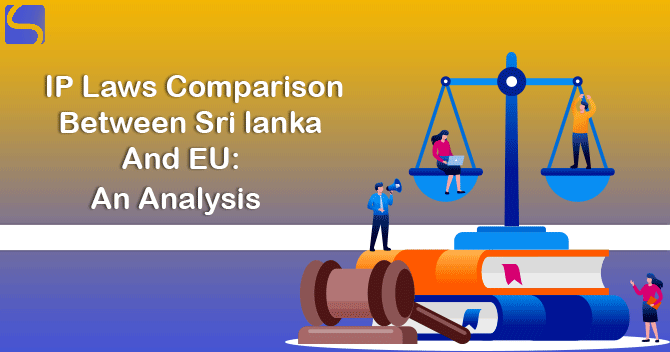How Can You Conduct an IP Due Diligence? – An Overview

Karan Singh | Updated: Dec 10, 2021 | Category: IPR
Nowadays, in every industry, there is very tough competition; business enterprises, in order to expand their business, to raise capital & to give monetary gains, have understood the significance of IP Assets. Hence, companies regularly conduct Intellectual Property Audits to know the complete value of these intangible assets & make the most of their possible benefits. IP Due Diligence is the estimation of an IP portfolio of any business, “checking valid IPR subsists therein and scope of their protection, examining the risks involved concerning thereto and in turn, assessing their potential value”. In simple words, IP Due Diligence is an exercise that gives a complete knowledge of the value & risks of a company’s intangible assets. For any business transaction involving Intellectual Property, Due Diligence is designed to analyse and check the scope, strength, and future potential that could be derived from intangible assets like Trademarks, Patents, or Copyrights. In this blog, we discuss how to conduct IP Due Diligence.
Table of Contents
When can IP Due Diligence be conducted?
Following are the conditions where IP Due Diligence is conducted:
- If there is an M&A (Merger and Acquisition);
- If a company or a business wants to raise money by mortgaging;
- If an investor desires to invest in any start-up company or business.
Why is it Necessary to conduct an IP Due Diligence?
- IP Due Diligence aids a company or business in reorganising its operations with the aim of increasing the marketability of its products or services;
- Ignoring IP Due Diligence could devalue the assets that have to be acquired;
- It also helps to exploit the value of these intangible assets, which can boost the balance sheet of the company;
- It helps to disclose risks and permits the acquirer to tackle the issues pre-close.
With the high number of acquisitions, more SMEs (Small & Medium-Sized Enterprises) looking to raise capital, pursuing a deal without conducting Intellectual Property Due Diligence is unlikely. As a seller, you are stress testing your Intellectual Property. By doing this, you notice the risks associated with Intellectual Property Assets, fix what is possible and if it cannot be fixed, create an appropriate narrative explaining the price.
Without conducting Intellectual Property (IP) Due Diligence, a business cannot understand the risk and so the prices. Therefore, Due Diligence is more of a detail collecting exercise. You are telling yourself about risk &, thus, price because the price is a function of risk. Without the correct information, any business or company cannot develop the right strategies to lessen the risks or correct the selling price when the risks cannot be mitigated.
Requirements for Conducting an IP Due Diligence
Every company or business transaction is different from each other and will have different kinds of requirements for conducting an IP Due Diligence. Following are some requirements that should be involved in an IP Due Diligence:
- Prove Existence & Ownership of IP: Ownership is one of the first issues examined while conducting an IP Due-Diligence. A series of questions are asked regarding each Intellectual Property Asset to set up the rights of the target company. If the assets’ ownership is disputed, the seller cannot transfer the rights & title of the asset to others. If the seller doesn’t own the intangible asset, the calculation will be done to check whether correct steps were taken to obtain the rights from the original owner.
- Identify IP Assets: In all businesses, domain names, brand names, Trademarks, Patents etc., are the intangible assets, and these are the intangible subject matter that requires to be recognised.
- Check for any 3rd Party Claims: Along with the ownership check, it is prudent to check any 3rd party interest/claims concerning the seller’s IP asset. Sometimes rights can accrue in favour of a 3rd party mistakenly also. Hence, scrutiny of all franchise & license agreements, MOUs (Memorandum of Understandings), Joint Venture Agreements should be done to recognise if any exclusive rights have been permitted regarding relevant Intellectual Property. The records of the Intellectual Property Office can be perused concerning pertinent IP Assets to recognise any discrepancy.
- Check for Relevant Territory & Terms: It is vital to check the validity of each IP Asset (terms & territory). Most Intellectual Property Rights are limited to a particular territory only. Hence, it’s vital to ascertain the territories in which the Intellectual Property Rights are safeguarded. If the company runs in several nations and has not got the Intellectual Property Rights covered in all those territories, it might cause problems in the future.
- Estimate Possible IP Infringements: Moreover, while conduction IP Due Diligence it is vital to check whether a 3rd party is violating a company’s IP Right or it is the company that might violate a 3rd party right. In both conditions, if the pertinent IP rights are subject to any encumbrance, a dispute is likely to arise with the outcome of disrupting the business operations. An FTO (Freedom to Operate[1]) search should be conducted to check whether the investor could use, sell, or make the Intellectual Property Assets without violating any 3rd party rights.
What are the steps to be followed to conduct an IP Due Diligence?
Following are the steps to be followed to conduct an IP Due Diligence:
- Lay down a proper IP Due Diligence team & examine thoroughly with IP experts your expectations from the transaction;
- Arrange and send an IP Due Diligence Checklist;
- Identify the IP assets of the proposed company relevant for the transaction – at the outset, separate IP rights or protectable intangible assets pertinent for the transaction from those which are not so; the Intellectual Property Due Diligence should enlighten the significance of associating such extra IP rights with the primary IP rights for the transaction;
- Commission a detailed search of the ownership of the Intellectual Property, collect information on other IP rights that may affect the use or sale of these rights in the future. Examine if there is any infringement or litigation involved;
- Moreover, it is the responsibility of the Due Diligence team to check facts & verify information received from the target; if & when any inconsistency is found, going back to the target with the further set of issues & questions must not be avoided at any cost;
- Examine safeguarded IP rights, validity, claim check, status check, conflict check, and ownership check should be conducted, in the manner mentioned above;
- Provide a final report of Due Diligence on risks involved along with the strategies to mitigate the liabilities & risk involved;
- Execute documents & record the IP Agreements.
Conclusion
It doesn’t matter what the arrangement of the IP Portfolio or what the transaction type conducting Due Diligence enables to recognise and mitigate the risks managed so that expectations & objectives can be met. A well-timed & correctly executed IP Due Diligence investigation can benefit both the parties involved & may lead to long-term connections and business collaborations.
Read our Article:Importance of IP Audits for Corporates: An Overview














